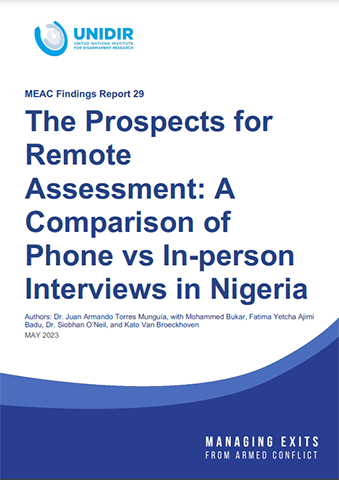This report is based on a research study about the effects of the interview method on non-response rates and honest reporting on sensitive question topics.
Specifically, the study set out to compare the answers to a set of five questions on drug use, victimization experiences, and social connectedness with the Boko Haram armed group between interviews conducted by phone and those administered face-to-face with an enumerator. The data comes from a survey carried out between May 2021 and early June 2022 (amid the COVID-29 health crisis) in the Maiduguri Metropolitan area and the communities of Jere and Kodunga, in Borno State, Nigeria, a region hard hit by the Boko Haram insurgency.
This report provides empirical evidence on the potential for utilizing remote assessment of UN-supported programmes in insecure and/or inaccessible areas. This report examines what works to overcome methodological challenges in remote data collection in the context of armed conflict, specifically by identifying the specific roll-out practices that appear to bolster responses.
Juan Armando Torres Munguía, Mohammed Bukar, Fatima Yetcha Ajimi Badu, Siobhan O’Neil, and Kato Van Broeckhoven (2023) "The Prospects for Remote Assessment: A Comparison of Phone vs In-person Interviews in Nigeria,” Findings Report 29, UNIDIR, Geneva, https://doi.org/10.37559/MEAC/23/03
